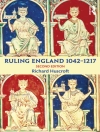James Edwards was born in the post construction era, 14 years after the Panama Canal
was built. In the book we see him as he goes through different stages of life
in a town that also changes with events and time. We follow him as he
transitions from childhood to adolescence to adulthood and we get to experience
the personal challenges, setbacks, and, as a young adult, the consequence of a
choice he makes due to circumstances at the time. His life is affected, and, in
many ways, shaped by that choice; and though it cleared a pathway for him,
nevertheless, it caused him to pay a very high price. He goes on to achieve
material success abroad and joins with other expatriates in noble causes to
honor and celebrate the sacrifices and contributions of their fathers and
mothers, whom the world had forgotten; but, in the end, there lingered with him,
still, an emotional and psychological attachment to the past. Not only does he
remember the town that is vanished, his forebears, his birthplace, the sites,
the favorite places, his childhood companions, the laughter, tears and happy
events, but there is also the memory of a promise unfulfilled. Perhaps, this is
best illustrated by the sight of a solitary rose lying on an empty park bench
as the story comes to its end












